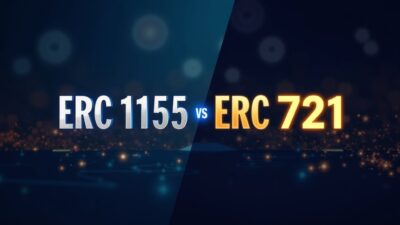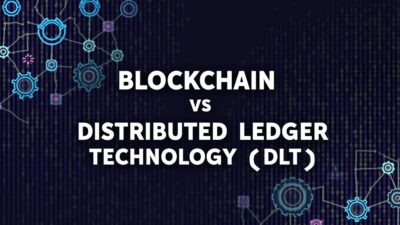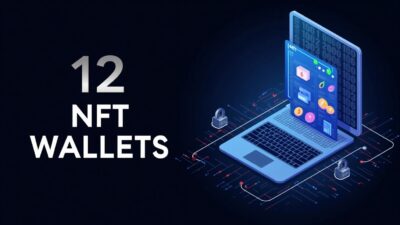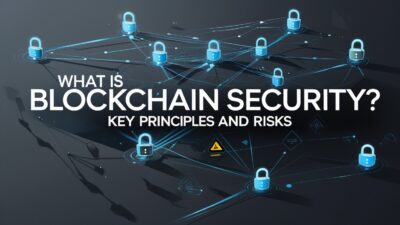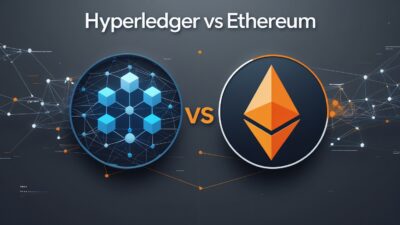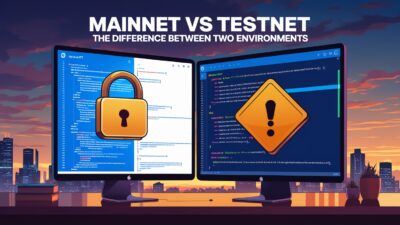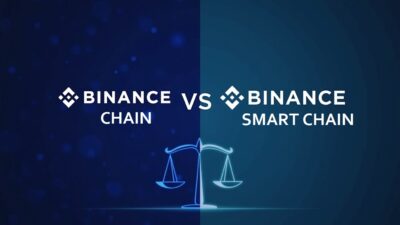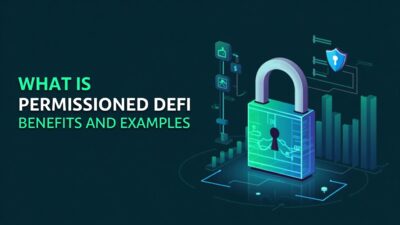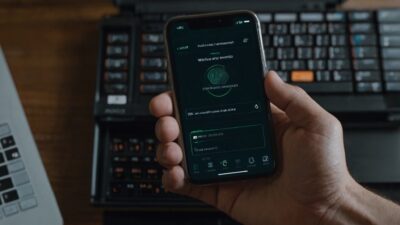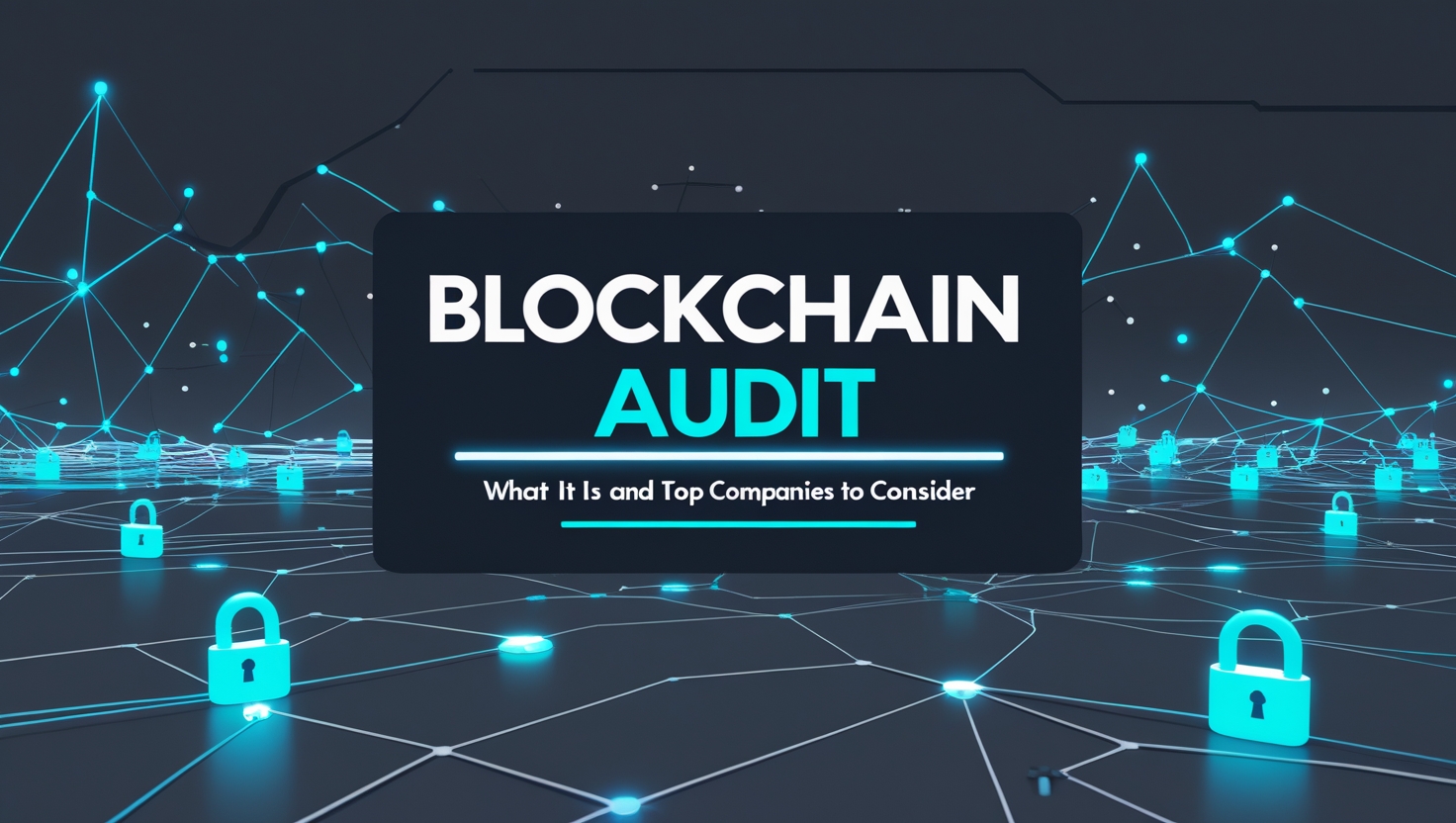
With billions of dollars moving through decentralized applications and smart contracts, security is not only essential, but it is everything in the world of Web3. Even a small bug or a wrong piece of code can lead to shattered systems with catastrophic loses and regulatory nightmares.
This is where the real heroes come into the picture with their technical expertise and a goal of protecting people from losing their investments. Meet the blockchain audit companies that help you secure your system by fortifying your smart contracts and blockchain code.
Blockchain audit is done either manually or with the help of automated tools, and these professionals know how to do both efficiently. Let’s help you guide through the whole process and tell you about the 10 best companies you can choose from to protect your decentralized systems.
What Is a Blockchain Audit?
A blockchain audit is a detailed review of a blockchain system, including its code, smart contracts, and transaction history.
Blockchain audit ensures security by identifying vulnerabilities, checks compliance by verifying that the system follows legal standards, and promotes transparency by confirming that transactions and smart contracts are behaving as intended.
Businesses use audits to protect customer data and maintain trust. Developers need these audits to catch bugs in smart contracts before launch, and investors look for audited projects to reduce risk and ensure reliability.
Common Types of Blockchain Audits
Blockchain audits come in a few key flavors, each tailored to different aspects of a project’s goals. Below is a details breakdown of the major ones.
- Smart Contract Audits: It reviews the code of smart contracts for bugs, vulnerabilities, and logic errors. As smart contracts are self-executing and irreversible, any flaw can lead to major financial loss or exploitation. These audits are designed for developers launching decentralized applications (dApps), DeFi platforms, or token contracts.
- Blockchain Security Audits: It evaluates the overall blockchain infrastructure, including consensus mechanisms, node operations, and data integrity. These audits ensure that the network is resistant to attacks like double-spending, Sybil attacks, or 51% attacks. These audits are best suited for Layer 1 blockchain projects, enterprise blockchain systems, and any platform that prioritizes robust security.
- Compliance and Financial Audits: These audits verify whether blockchain systems and transactions comply with legal, regulatory, and accounting standards. They also help avoid legal penalties, ensure transparency for stakeholders, and build trust with regulators. These audits are best for businesses using blockchain for financial services, supply chain tracking, or tokenized assets.
How Do Blockchain Audits Work?
Blockchain audits are lengthy in nature and can be quite confusing for beginners. Below is a step-by-step breakdown of how these audits actually work.
1. Scoping
The audit firm meets with the client to understand the project’s goals, architecture, and components, such as smart contracts and blockchain protocols. This defines the scope, timeline, and depth of the audit, determining whether it is a comprehensive system review or a review of smart contracts.
2. Code Review
During this phase, auditors manually and/or automatically inspect the codebase line by line. They check for logic errors, coding standards, gas efficiency, and potential attack vectors.
As smart contracts are immutable once deployed, catching the flaws early is critical.
3. Vulnerability Checks
The audit team runs security tests to identify known exploits like reentrancy attacks, integer overflows, front-running, and oracle manipulation. This is done by using static analysis tools, fuzzing, and penetration testing. Vulnerability checks prevent financial loss and reputational damage from hacks or exploits.
4. Reporting
During this phase, auditors compile a detailed report outlining the discovered vulnerabilities, severity levels, and recommended fixes. It provides developers with a clear roadmap to patch issues and enhance security.
5. Re-Audit
After fixes are implemented, the auditors re-check the code. Although this step is optional, it confirms that vulnerabilities have been properly resolved and that no new issues have been introduced.
Before hiring an auditing firm, you should expect transparency by asking them to share their methodology & past audit results, a robust collaboration with back-and-forth communication, a timeline telling you how many days it will take for the audit to complete, and a complete cost without any hidden charges.
Why are Blockchain Audits Important?
Blockchain audits are extremely crucial in keeping a decentralized system safe and scalable. Below is a detailed list of reasons why no one should ever skip these audits.
- Audits identify vulnerabilities, such as reentrancy attacks and logic flaws, before they can be exploited. This proactive security helps protect user funds and sensitive data from malicious actors.
- Audits build investor trust by signaling professionalism and reliability. Transparency in smart contracts boosts confidence in the project’s integrity.
- Audits help meet regulatory requirements by ensuring compliance with financial, data protection, and industry-specific regulations. This is especially important for projects operating in tightly regulated sectors like finance or healthcare.
- A secure and compliant system attracts partnerships and users, resulting in massive funds. These audits reduce the risk of costly errors or reputational damage, thereby clearing the path for sustainable growth and scaling.
10 Best Blockchain Audit Companies for You to Consider
To help you secure your decentralized system and apps, we have shortlisted the 10 best blockchain audit companies. They are best in class and cater to different people with different needs.
1. CertiK

CertiK, founded by professors from Yale and Columbia, is recognized as one of the most trusted names in blockchain security. CertiK has audited over 18,000 projects, securing a market capitalization of more than $589 billion. It is trusted by major players across the Web3 space, including OKX and Samsung, and it has also contributed to protocols like TON and LINE Blockchain.
CertiK utilizes advanced AI systems, such as Skynet, to continuously monitor blockchain ecosystems for threats and anomalies. Their latest innovation includes an AI ZK-Proof audit tool that cuts verification time by 50%, making audits faster and more efficient without compromising quality.
Certik’s speciality lies in smart contract audits through manual and automated code reviews to detect logic flaws and critical vulnerabilities. They also offer blockchain vulnerability assessments through formal verification to ensure the network’s resilience against 51% exploits or oracle manipulation.
2. Trail of Bits
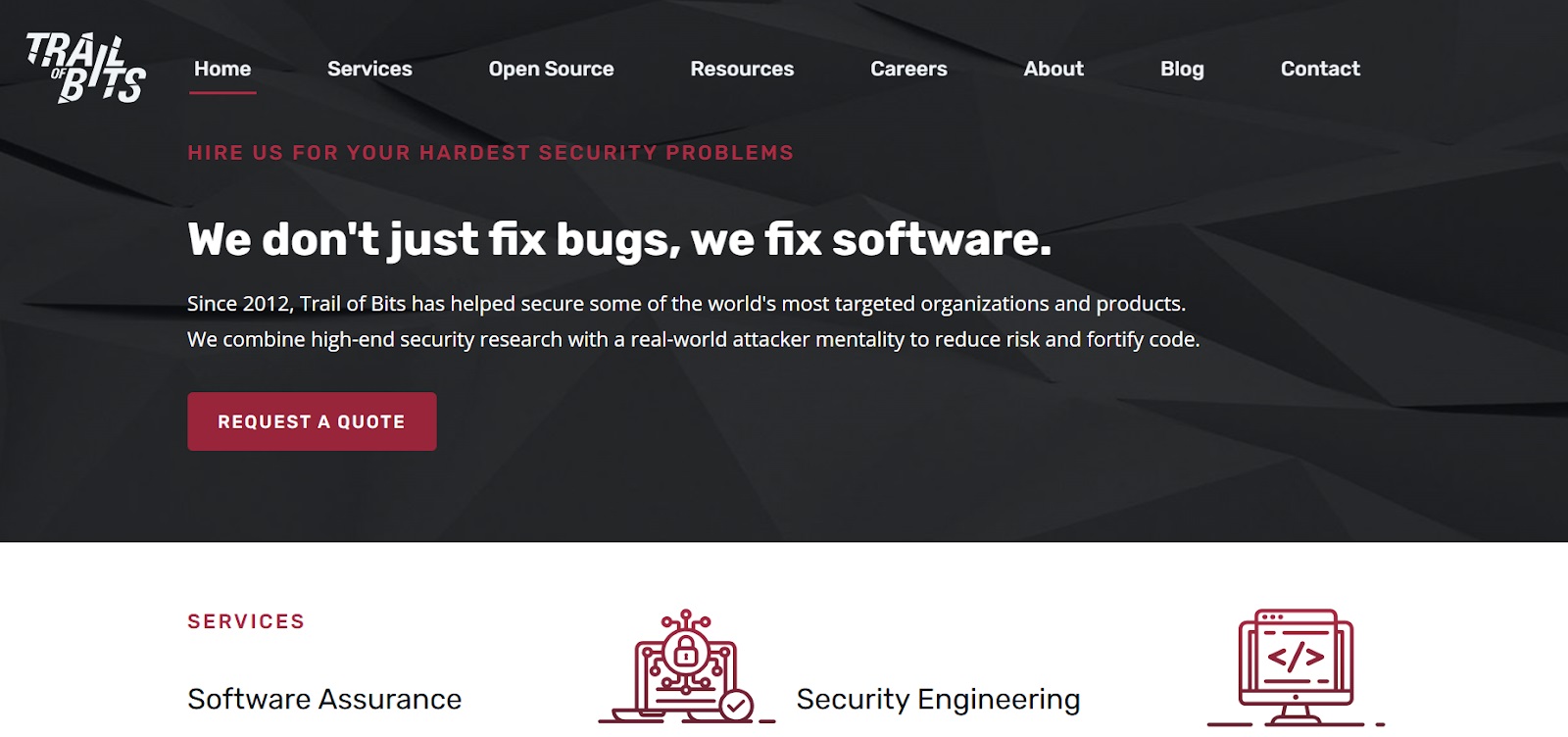
Trail of Bits is a premier cybersecurity firm known for its deep technical expertise in formal verification and advanced blockchain security. They use mathematical methods to prove the correctness of smart contracts and blockchain logic.
Trail of Bits also excels at inspecting complex systems written in languages like Rust and Solidity. They offer custom security tools like Slither and Medusa to automate vulnerability detection and fuzz testing.
Trail of Bits has worked extensively with the Ethereum ecosystem and smart contracts for major platforms like Uniswap and Frax Finance. They are ideal for projects that demand rigorous and research-driven audits.
3. Webisoft

Webisoft is a full-stack blockchain development and audit company that blends technical depth with strategic vision to emerge as a standout choice for startups and emerging Web3 ventures.
Webisoft is a venture development firm that helps startups shape their product strategy from idea to launch. Their team works closely with founders to align blockchain solutions with business goals.
Webisoft believes in a hands-on approach to blockchain audits by diving deep into smart contract logic to uncover vulnerabilities and optimize performance. Their audits emphasize regulatory compliance and code reliability.
Their expertise spans multiple industries, including finance and real estate, which makes them a versatile partner for both technical and strategic needs of a web3 system.
4. OpenZeppelin

OpenZeppelin is the cornerstone of the Ethereum ecosystem that is renowned for its pioneering work in smart contract security, developer tooling, and blockchain audits. Its contracts library is the gold standard for Solidity development and also offers pre-audited templates for ERC-20, ERC-721, governance, and DeFi protocols.
OpenZeppelin provides highly specialized audits for smart contracts, zero-knowledge proofs (ZKPs), and blockchain infrastructure. With over 1 million lines of code reviewed and $50 billion in total value locked (TVL) secured, their audits are trusted by top-tier projects.
Their tools and audits have been integrated into major platforms, including Stellar and numerous DeFi protocols. OpenZeppelin also powers Defender, a security operations platform that automates threat detection and transaction monitoring for live protocols.
OppenZeppelin is ideal for projects that prioritize security and scalability.
5. Consensys Diligence

ConsenSys Diligence is the security arm of ConsenSys, a leading Ethereum software company. It specializes in smart contract audits to help developers build secure and reliable decentralized applications.
ConsenSys Diligence is deeply embedded in the Ethereum ecosystem, offering manual audits and security consulting for smart contracts. Their team has reviewed thousands of contracts for major DeFi platforms, like Aave, and has helped them secure billions in total value locked.
MythX is their flagship tool that scans smart contracts for known vulnerabilities using static & dynamic analysis, symbolic execution, and Integration with developer tools like Truffle. It detects issues like integer overflows, unprotected self-destructs, and reentrancy bugs.
ConsenSys Diligence has played a key role in strengthening the security of high-profile DeFi projects.
6. Quantstamp

Quantstamp is a globally recognized blockchain security firm that offers comprehensive audit services across a wide range of networks, including Ethereum, Solana, Binance Chain, Avalanche, and Flow.
With over 750 successful projects across 40+ ecosystems, Quantstamp is known for its ability to adapt to diverse blockchain architectures and protocols. Their major focus is on scalability, compliance, and post-deployment monitoring.
Quantstamp offers smart contract audits through deep code reviews, formal verification & static analysis to ensure mathematical correctness, and penetration testing to simulate real-world attacks.
Quantstamp has partnered with leading Web3 platforms and enterprise clients, including Ethereum 2.0 clients like Prysm and Teku. Their team includes ex-developers from Google, Meta, Microsoft, and the Ethereum Foundation.
7. Hacken

Founded in 2017, Hacken is a leading cybersecurity firm that specializes in blockchain security audits and penetration testing. It offers smart contract audits, protocol reviews, and dApp security assessments for both startups and enterprise-grade platforms.
Hacken’s penetration testing simulates real-world attacks to uncover weaknesses in blockchain infrastructure and wallet integrations.
DeFi protocols and exchanges, including Avalanche and CoinGecko, especially trust Hacken. Their audits are known for being thorough and transparent.
Hacken runs HackenProof, a bug bounty platform that connects projects with over 45,000 ethical hackers worldwide. This crowdsourced model allows teams to receive vetted reports on vulnerabilities, only paying for confirmed bugs.
8. Spearbit

Spearbit is a decentralized network of elite security researchers offering custom blockchain audits and flexible security engagements. Rather than operating as a traditional firm, Spearbit connects clients with handpicked experts through its platform, Cantina, to create a more agile and specialized approach to blockchain security.
Spearbit provides bespoke smart contract reviews, advanced protocol assessments, and penetration testing for high-stakes deployments. Their researchers specialize in complex domains like DeFi, MEV, ZK cryptography, and cross-chain systems.
Their modular approach makes Spearbit ideal for startups, DAOs, and scaling protocols that need on-demand security expertise. Spearbit has worked with top-tier projects, including Uniswap, Optimism, Maker, and BASE, helping secure billions of dollars in assets.
9. Sigma Prime
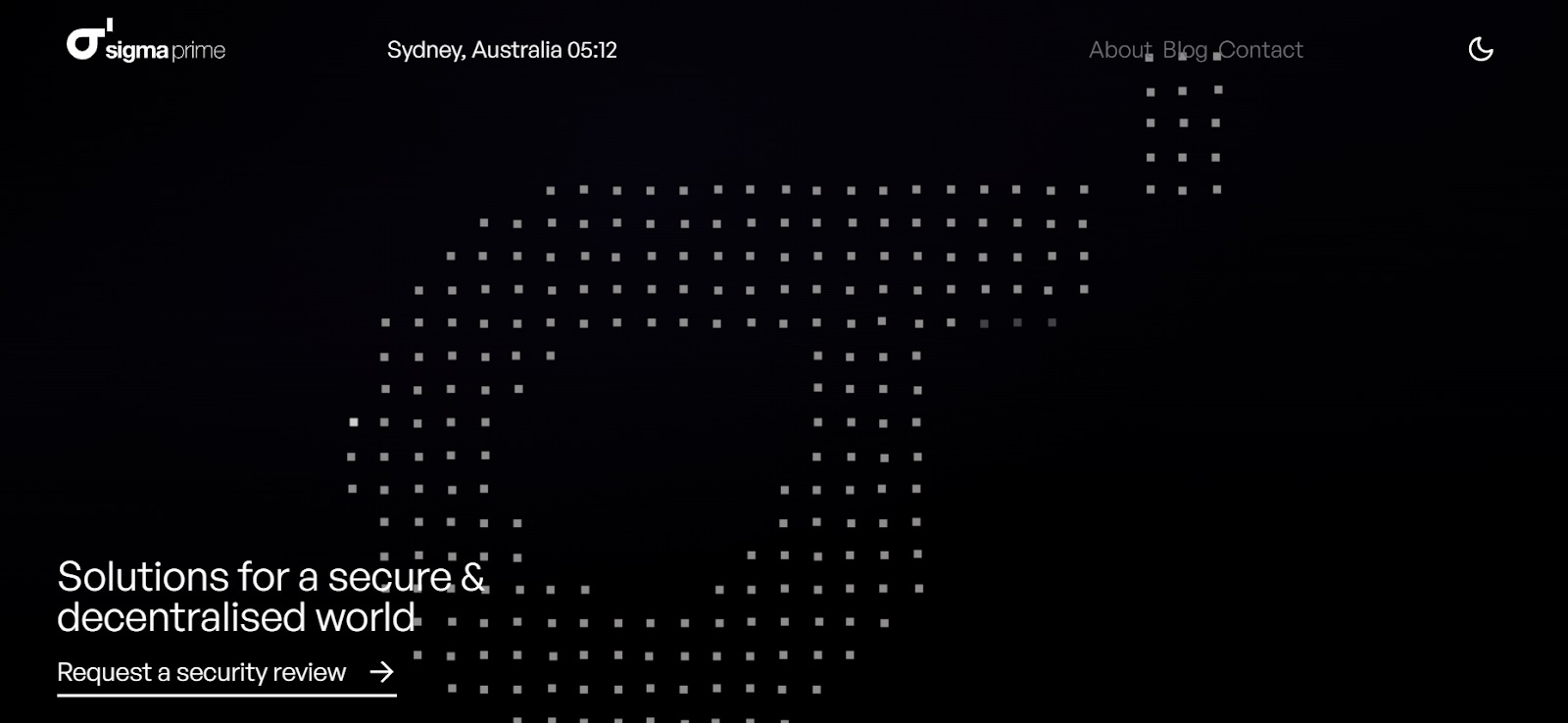
Sigma Prime is a technically elite blockchain security firm known for its deep involvement in Ethereum 2.0 and critical infrastructure audits. They use mathematical proofs to validate smart contract logic and protocol behavior.
Sigma Prime specializes in secure implementations of consensus algorithms, zero-knowledge proofs, and encryption protocols. Their audits go beyond smart contracts to assess full blockchain clients, validator systems, and network layers.
Sigma Prime is the creator and maintainer of Lighthouse, a leading Ethereum 2.0 consensus client written in Rust. Their clients include Chainlink and AlphaWallet, among others.
10. Halborn

Founded by ethical hacker Steven Walbroehl and growth strategist Rob Behnke, Halborn is a top-tier blockchain security firm recognized for delivering enterprise-grade protection to some of the largest names in cryptocurrency and finance.
Halborn has secured infrastructure for Ripple, Solana, Polygon, Near, and even Bored Ape Yacht Club. Their clients include global banks, crypto custody providers, and DeFi protocols, reflecting their credibility across both traditional finance and Web3.
With over 100 top-tier offensive security engineers, Halborn’s team specializes in manual code reviews, real-world attack simulations, and zero-day vulnerability discovery. They have completed over 2,500 assessments, protecting more than $1 trillion in digital assets.
Halborn offers smart contract audits, DevSecOps, penetration testing & red teaming, and security advisory services.
How to Choose the Right Blockchain Audit Company
Choosing the right blockchain audit company is crucial, as it can significantly impact the security and integrity of your system. Below are some of the factors you must consider before finalizing your choice.
1. Reputation
Reputation reflects trustworthiness and reliability and is especially important in the high-stakes world of Web3. Check if the company you are interested in has a proven track record with well-known protocols and positive client feedback.
2. Experience
Experienced auditors are more likely to catch subtle bugs and understand complex systems.
Look out for the company’s years in the industry, the number of audits completed, and the diversity of blockchain platforms supported.
3. Compliance Knowledge
Compliance knowledge ensures that your project meets legal requirements and avoids regulatory pitfalls, and is especially critical for DeFi and enterprise use cases. The blockchain audit company you are selecting must be familiar with regulations like GDPR, AML/KYC, and financial reporting standards.
4. Cost
Always make sure that the company has transparent pricing, clear deliverables, and value for money. While cheaper audits may seem appealing, cutting corners on security can lead to costly breaches in the future.
5 Timeline
Make sure that the company offers realistic delivery schedules and flexibility for re-audits or urgent fixes. Timely audits help you launch safely without delaying your roadmap or compromising quality.
How Much do Blockchain Audits Cost?
Blockchain audits are strategic investments, and their cost varies depending on your needs and end goals. It also depends on the blockchain audit company you are going to select. Highly reputable companies with hundreds of delivered projects cost way more than normal ones.
Below is an estimated breakdown of the audit cost depending on your project’s scope.
| Project Size | Estimated Cost | Scope |
| Small | $5,000 – $15,000 | Basic smart contracts |
| Mid-Sized | $15,000 – $50,000 | DeFi protocols, multi-contract dApps, Layer 2 integrations |
| Enterprise | $50,000 – $150,000+ | Full blockchain systems, cross-chain bridges, compliance-heavy apps |
The factors that affect the cost of a blockchain audit include.
- Code Complexity: More intricate logic or cryptographic functions require deeper analysis and specialized expertise, increasing cost exponentially.
- Project Size: Larger codebases or multi-contract systems take more time to audit thoroughly, increasing labor and cost.
- Compliance Requirements: Projects in regulated industries may need additional checks for data privacy, AML/KYC, or legal standards, thus increasing the cost.
- Re-Audit and Post-Launch Monitoring: Some firms offer re-audits or ongoing threat detection, which can add to the overall investment but significantly boost security.
Blockchain code audits are not expenses; they are strategic investments as they prevent costly exploits that could drain millions of assets. They also build investor and user trust, especially for public launches. As code audits support regulatory readiness, they help avoid legal setbacks. Blockchain audits strengthen your brand as a secure and reliable Web3 player.
Wrapping Things Up
Whether you are launching a DeFi protocol, minting NFTs, or building enterprise-grade infrastructure, choosing the right blockchain audit firm can make all the difference. With top players like CertiK and Trail of Bits leading the charge, you are never short of expert options.
If you want to learn more about blockchain and how to secure your web3 systems, join Dypto-Crypto right now. We offer free blogs and How-To guides to help you understand everything related to crypto. With the sign-up, you will also receive our free weekly newsletter containing all the latest web3 news.
FAQs (Frequently Asked Questions)
Q: Do all blockchain projects need an audit?
A: Yes, as security is non-negotiable when it comes to decentralized projects. A single mistake or hack can cost billions of dollars.
Q: How long does a blockchain audit take?
A: It depends on the complexity and scope of the project. However, a blockchain audit usually takes from 3 days to 6 weeks, depending on the project and services required.
Q: Can I launch my smart contract before getting an audit?
A: You can, but you definitely shouldn’t. Smart contracts are immutable, and once launched, they can’t be changed. If the hackers find any vulnerability in your smart contracts, it will result in a disaster.
Q: What’s the difference between manual and automated blockchain audits?
A: Manual blockchain audits are performed by human security experts who go over the code line by line. Automated blockchain audits use software tools to scan smart contracts for known vulnerabilities using predefined rules and algorithms.

